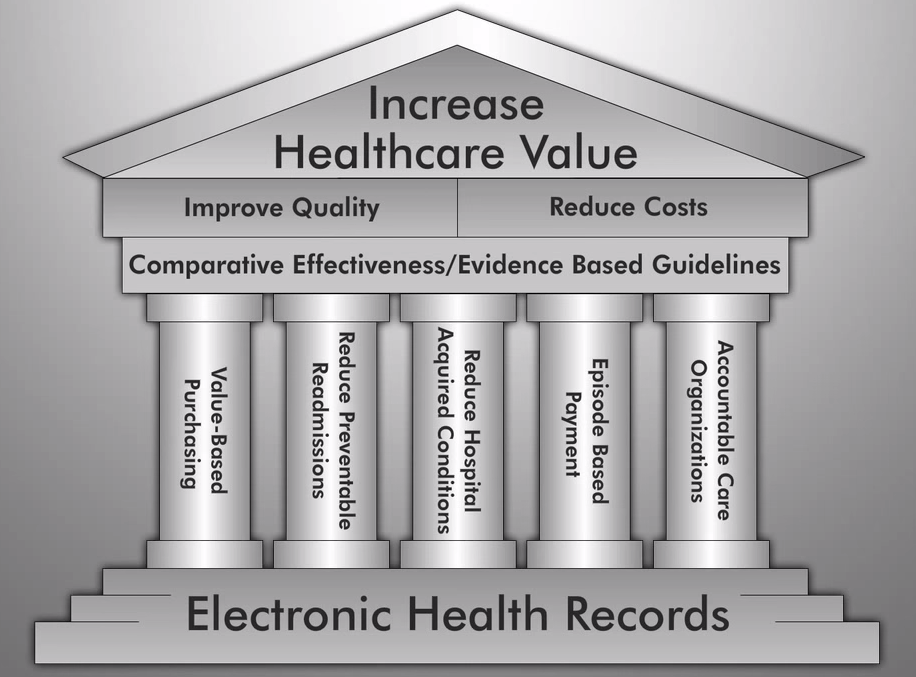Medicare ACOs Succeed With $411 Million in Savings in 2014







According to CMS Accountable Care Organizations (ACOs) generated more than $411 million in total savings in 2014, which includes all ACOs’ savings and losses.
The gist of what this means is that under the ACA CMS allowed Medicare providers to band together in “Accountable Care Organizations” where they would be rewarded for delivering quality effective care. Some ACOs reduced healthcare spending and got rewarded for it, some didn’t, but in all more than $411 million in total savings in 2014 was generated between two types of ACOs (with a smaller group of early adopters more successful than new adopters).
Medicare spending is one of America’s biggest economic challenges, so it’s good to see the ACA and it’s Medicare solutions having a positive impact.
You can learn more about ACOs here.
You can read the whole Medicare ACOs Provide Improved Care While Slowing Cost Growth in 2014 here.
You can read the corresponding press release on ACOs here.

SUMMARY OF RESULTS:
Pioneer Performance Year 3 Results
Pioneer ACOs are early adopters of coordinated care and tend to be more experienced, have an established care coordination infrastructure, and assume greater performance-based financial risk. The 20 Pioneer ACOs participating in 2014 (Performance Year 3) were accountable for 622,265 beneficiaries, a 2% increase from 607,945 beneficiaries in 2013 (Performance Year 2). These ACOs showed continued strong performance and improvement across financial, quality of care, and patient experience measures.
Financial:
- During the third performance year, Pioneer ACOs generated total model savings of $120 million, an increase of 24% from Performance Year 2 ($96 million), which was itself an increase from Performance Year 1 ($88 million).
- Of 15 Pioneer ACOs who generated savings, 11 generated savings outside a minimum savings rate and earned shared savings. These 11 ACOs qualify for shared savings payments of $82 million. Of 5 Pioneer ACOs who generated losses, three generated losses outside a minimum loss rate and owed shared losses. These ACOs are paying CMS $9 million in shared losses.
- Total model savings per ACO increased from $2.7 million per ACO in Performance Year 1 to $4.2 million per ACO in Performance Year 2 to $6.0 million per ACO in Performance Year 3.
Quality of Care and Patient Experience:
- The mean quality score among Pioneer ACOs increased to 87.2 percent in Performance Year 3 from 85.2 percent in Performance Year 2, which was itself an improvement from 71.8 percent in Performance Year 1.
- The organizations showed improvements in 28 of 33 quality measures and experienced average improvements of 3.6% across all quality measures compared to Performance Year 2. Particularly strong improvement was seen in medication reconciliation (70% to 84%), screening for clinical depression and follow-up plan (50% to 60%), and qualification for an electronic health record incentive payment (77% to 86%).
- Pioneer ACOs improved the average performance score for patient and caregiver experience in 5 out of 7 measures compared to Performance Year 2, suggesting that Medicare beneficiaries who obtain care from a provider participating in a Pioneer ACO continue to report a positive experience.
Medicare Shared Savings Program Performance Year 2014 Results for ACOs with 2012, 2013, and 2014 start dates
Ninety-two Shared Savings Program ACOs held spending $806 million below their targets and earned performance payments of more than $341 million as their share of program savings. No Track 2 ACOs owed CMS losses. Total net savings to the Medicare Trust Funds was $465 million. These numbers represent an increase from 2013, when 58 ACOs held spending $705 million below their targets and earned performance payments of more than $315 million. Total net savings to the Medicare Trust Funds was $383 million.
- An additional 89 ACOs reduced health care costs compared to their benchmark, but did not qualify for shared savings, as they did not meet the minimum savings threshold.
- ACOs with more experience in the program were more likely to generate shared savings. Among ACOs that entered the program in 2012, 37 percent generated shared savings, compared to 27 percent of those that entered in 2013, and 19 percent of those that entered in 2014.
- Shared Savings Program ACOs that reported in both 2013 and 2014 improved on 27 of 33 quality measures. Quality improvement was shown in such measures as patients’ ratings of clinicians’ communication, beneficiaries’ rating of their doctor, screening for tobacco use and cessation, screening for high blood pressure, and Electronic Health Record use.
- Shared Savings Program ACOs achieved higher average performance rates on 18 of the 22 Group Practice Reporting Option Web Interface measures reported by other Medicare FFS providers reporting through this system.
- Eligible professionals participating in ACOs also qualify for their Physician Quality Reporting System (PQRS) incentive payments for reporting their quality of care through the ACO. These providers will also avoid the PQRS payment adjustment in 2016 because their ACO satisfactorily reported quality measures on their behalf for the 2014 reporting year.
- The Shared Savings Program continues to receive strong interest from both new applicants seeking to join the program as well as from existing ACOs seeking to continue in the program for a second agreement period starting in 2016. New and renewing ACOs will be announced around the end of 2015.